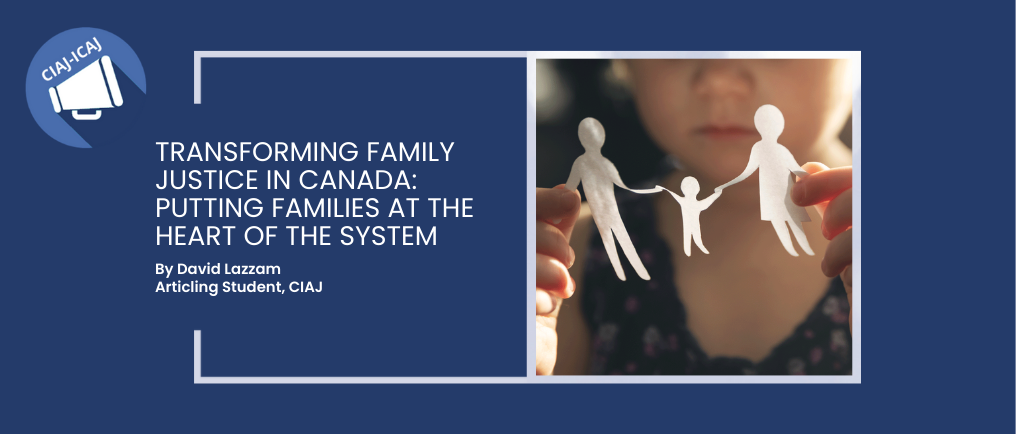Transforming Family Justice in Canada: Putting Families at the Heart of the System

Although reforms have been recently undertaken, family law professionals in Canada are well aware that our current laws do not fully meet the needs of families, and can even cause more harm than good. The Action Committee on Access to Justice’s 2013 report on family justice reform [Family Justice Working Group of the Action Committee on Access to Justice in Civil and Family Matters, Family Justice Reform: A review of Reports and Initiatives (2012)] summarised the mood within family law, noting that “the perception that the various family justice reform efforts made to date have fallen short of the mark is reasonably common, as is the concomitant suggestion that something more “drastic” or fundamental is required to bring the necessary changes to family justice.”
How, then, can we achieve a fundamental shift when so many reform efforts have failed to achieve that goal?
Alberta’s Reforming the Family Justice System (RFJS) initiative strives to address this question by proposing a profound overhaul of family justice systems. Led by Diana Lowe, K.C., co-lead of the project and a speaker at our upcoming Annual Conference on “Families and the Law” from October 9-11, the initiative has drawn together over 400 collaborators from diverse sectors, from judges and lawyers to psychologists, educators, financial advisors, and Indigenous group representatives [Ibid at 1158.]. Their shared goal is to fundamentally rethink how family justice is delivered, placing families at the center of all concerns.
One driving area of focus for the RFJS is to integrate findings from neuroscience, particularly those related to Adverse Childhood Experiences (ACEs), a topic pioneered in studies from the US Centre for Disease Control and Prevention. These studies highlight how high-conflict and adversarial behaviors within family law can harm children’s brain development and overall well-being, leading to serious long-term impacts on their mental and physical health [Ibid]. By focusing on these studies, the RFJS has been able to better identify the harms prevalent within family justice, develop systemic reforms (such as the triaging of family cases), and build further networks with non-legal professionals to mitigate these damages.
More broadly, initiatives like the RFJS have grappled with what is required to affect a true paradigm shift, rather than simply attempting to improve the current paradigm as past reforms have done. To truly make a difference, a comprehensive and interdisciplinary approach is essential. This means going beyond mere legal responses to address the social, relational, parenting, and financial roots of family issues. As Diana Lowe explains: “When we untangle these elements of family justice, it is clear that legal responses are not helpful for responding to social, relationship, parenting and financial issues – they usually just escalate the situation into a battle ground.” [Ibid at 1161.]
Let’s continue the discussion!
At our Annual Conference on “Families and the Law,” particularly during the first panel on “Reforming Family Law Systems: Putting Families at the Center,” we will explore how these innovative ideas can be put into practice.
Joining Diana Lowe, we will have the honor of hearing from the Honorable Justice Connie Petersen (Family Division), judge at the Court of King’s Bench of Manitoba, as well as the Honorable Justice James R. Williams, judge at the Supreme Court of Nova Scotia (Family Division). This panel will be moderated by the Honorable Justice P. Colleen Suche, judge at the Court of King’s Bench of Manitoba. They will share their wealth of knowledge, the lived experiences of the families who have passed through their courts, and the work that is required to transcend our ways of thinking and create a family justice system that truly puts families at the heart of its concerns.

